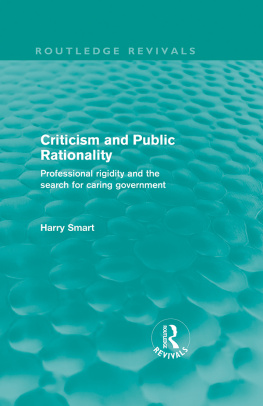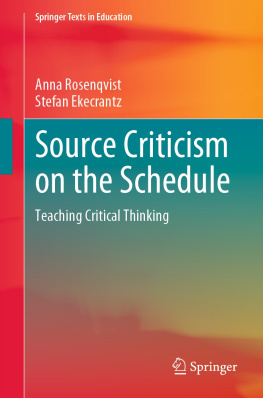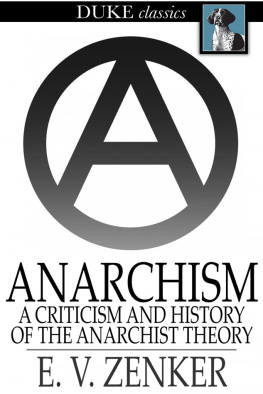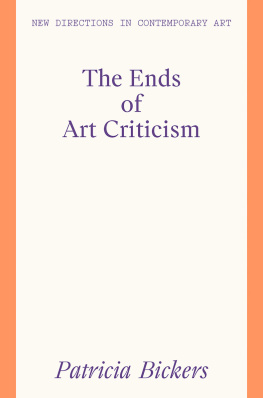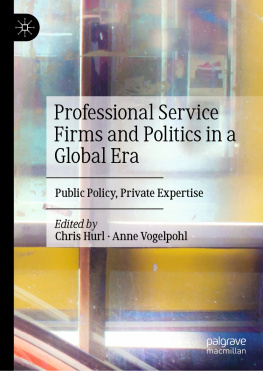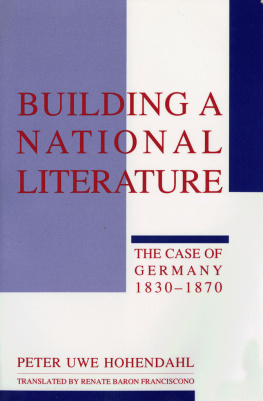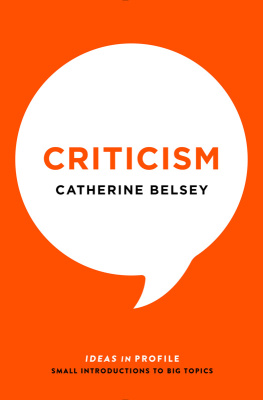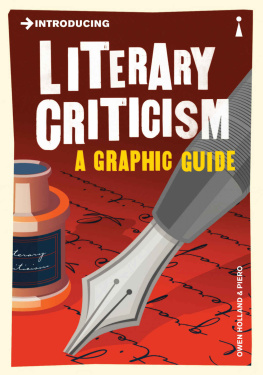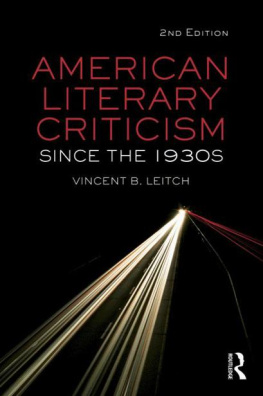Routledge Revivals
Criticism and Public Rationality
Criticism is at the heart of any political discussion, and criticism of old policies is central to the development of new ones. In its analysis of political decision-making, this reissue, first published in 1991, examines the principles which control the process of policy criticism. It identifies two fundamental and related obstacles to this process: the privileged status accorded to professional judgement and the conflicting philosophical ideas that shape political argument. Based on the study of Europes largest local authority, the book presents a theory of decision-making that can be applied to institutions at all levels.
Criticism and Public Rationality
Professional rigidity and the search for caring government
Harry Smart
First published in 1991
by Routledge
This edition first published in 2011 by Routledge
2 Park Square, Milton Park, Abingdon, Oxon, OX14 4RN
Simultaneously published in the USA and Canada
by Routledge
270 Madison Avenue, New York, NY 10016
Routledge is an imprint of the Taylor & Francis Group, an informa business
1991 Harry Smart
Coda 1991 Ronald Young
Verse extract on p. 197, from East Coker V by
T.S. Eliot, reprinted by permission of Faber & Faber Ltd,
Mrs Valerie Eliot
All rights reserved. No part of this book may be reprinted or reproduced or utilised in any form or by any electronic, mechanical, or other means, now known or hereafter invented, including photocopying and recording, or in any information storage or retrieval system, without permission in writing from the publishers.
Publishers Note
The publisher has gone to great lengths to ensure the quality of this reprint but points out that some imperfections in the original copies may be apparent.
Disclaimer
The publisher has made every effort to trace copyright holders and welcomes correspondence from those they have been unable to contact.
A Library of Congress record exists under LC Control Number: 90046920
ISBN 13: 978-0-415-61354-5 (hbk)
Criticism and Public Rationality
Professional Rigidity and the Search for Caring Government
Harry Smart
First published in 1991
by Routledge
11 New Fetter Lane, London EC4P 4EE
Simultaneously published in the USA and Canada
by Routledge
a division of Routledge, Chapman and Hall, Inc.
29 West 35th Street, New York, NY 10001
1991 Harry Smart
Coda 1991 Ronald Young
Verse extract on p. 197, from East Coker V by
T.S. Eliot, reprinted by permission of Faber & Faber Ltd, Mrs Valerie Eliot.
Typeset by
NWL Editorial Services, Langport, Somerset, England
Printed in Great Britain
All rights reserved. No part of this book may be reprinted or reproduced or utilized in any form or by any electronic, mechanical, or other means, now known or hereafter ivented, including photocopying and recording, or in any information storage or retrieval system, without permission in writing from the publishers.
British Library Cataloguing in Publication Data
Smart, Harry, 1956-
Criticism and public rationality: professional rigidity and the search for caring government. (Routledge geography and environment series)
1. Great Britain. Local government. Policies. Formulation
I. Title
352.000470941
ISBN 0415030722
Library of Congress Cataloging-in-Publication Data
Smart, Harry, 1956
Criticism and public rationality : professional rigidity and the search for caring government / Harry Smart.
p. cm. (Routledge geography and environment series)
Includes index.
ISBN 0415030722
1. Strathclyde (Scotland). Regional Council. 2. Local governmentScotlandStrathclydeDecision making. 3. Urban policyScotlandStrathclyde. I. Title. II. Series.
JS4206.S76S62 1991 | 9046920 |
352.0004725094141 dc20 | CIP |

Contents
I would like to thank the following people in particular: Nick Williams, of Aberdeen University, for his supervision of the original research and for his encouragement throughout the project; Brian Robson and Michael Bradford for their help during the long haul towards publication, and Jon Chaplin, for his support during the later stages of the preparation of the book. My wife, Catriona, has persistently stimulated me throughout the course of the books development. Above all, the project would have been impossible without the support of officers and members of Strathclyde Regional Council, who showed remarkable generosity in allowing access to documents and to the process of decision-making, and in the way that they gave time to help with general investigation and to record interviews.
Thanks are due to the following for permission to quote from copyright materials: Cambridge University Press, for The Reorganisation of British Local Government: Old Orthodoxies and a Political Perspective; Oxford University Press, for Objective Knowledge; Harper & Row Ltd, for Urban Deprivation and Government Initiative; Heinemann Group, for The Positivist Dispute in German Sociology; The Controller of Her Majestys Stationery Office, for The New Scottish Local Authorities: Organisation and Management Structures; The Home Office Voluntary Service Unit, for CDP: Objectives and Strategy and Gilding the Ghetto.
The original research on which this book is based was carried out with the help of a grant from the Social Science Research Council, a body which has since changed its name.
Thanks are due to the following for assistance: Appropriate Technology (Aptec) Ltd, for provision of a Genius A4 monitor and of Bitstream Fontware; Fujitsu UK Ltd, for the loan of an RX7100PS laser printer; Xerox UK Ltd for Ventura Publisher v.2.0 with Professional Extension; WordPerfect UK Ltd for WordPerfect 4.2. The Dedication and the figure in were produced with Corel Draw, provided by Software Forward Ltd.
This book is about the way that political institutions take decisions; more specifically, it is about the way that Strathclyde Regional Council, one of Britains biggest public authorities, tackled decision-making from the mid-1970s up to 1980. Although the book looks at local government, the principles it puts forward apply equally to national government and to less formal sorts of public debate, from the media to the parish council. It is about political culture; about the way we think about political argument, and about the principles which control any relatively organised political argument. In particular, it is about principles which control the way we conduct criticism, since criticism is at the heart of any political discussion, and at the heart of any attempt to change things.

